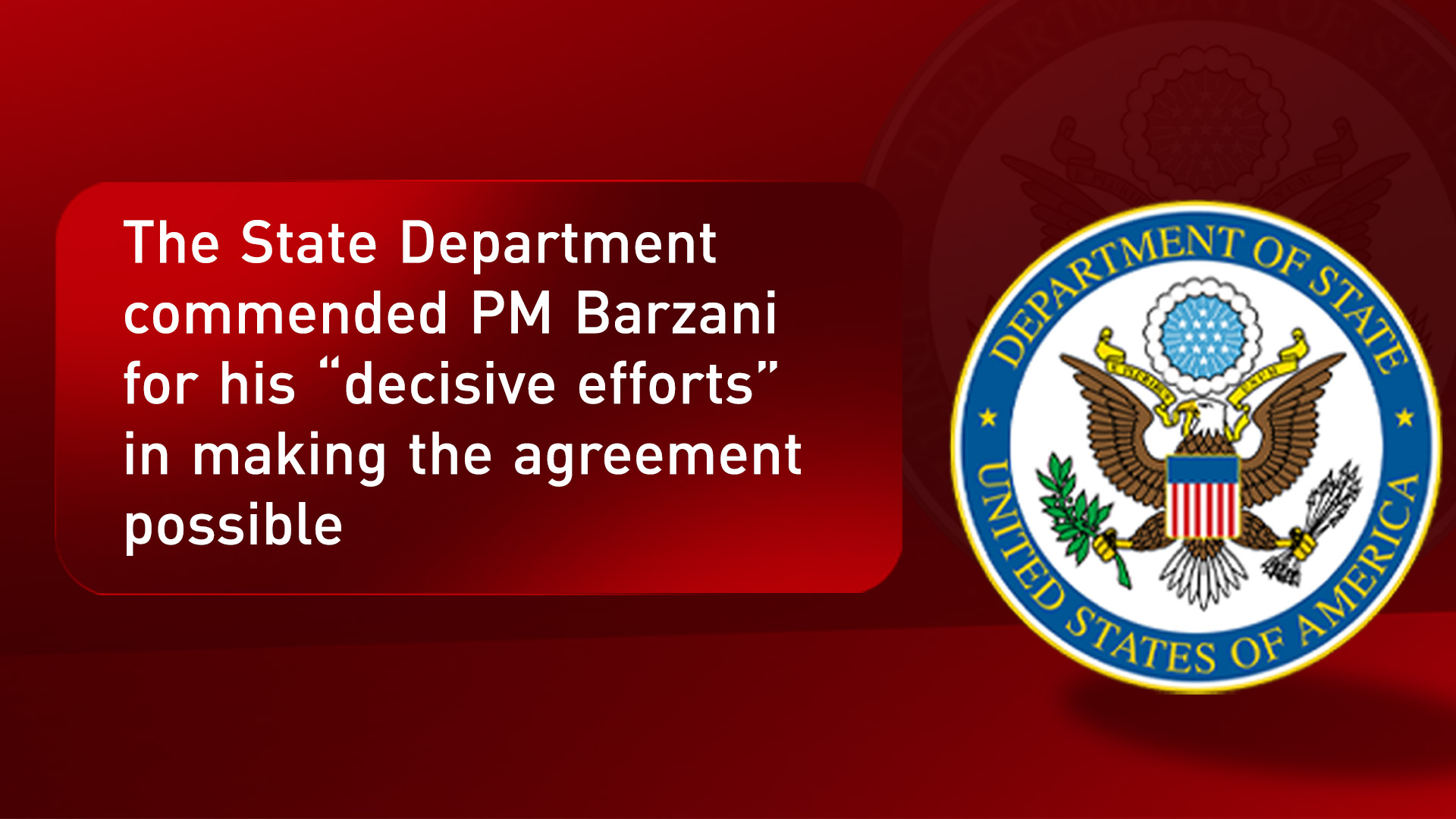US Welcomes Iraq–KRG Agreement on Oil Exports, Praises Leaders’ Efforts
The State Department commended Kurdistan Region Prime Minister Masrour Barzani and Iraqi Prime Minister Mohammed Shia’ al-Sudani, along with senior officials from both governments, for their “decisive efforts” in making the agreement possible.

ERBIL (Kurdistan24) – The United States Department of State on Thursday welcomed the agreement reached between the Government of Iraq, the Kurdistan Regional Government (KRG), and international oil companies to reopen the Iraq–Turkey pipeline, describing it as a deal facilitated by Washington that will deliver “tangible benefits for both Americans and Iraqis.”
In its statement, the State Department commended Kurdistan Region Prime Minister Masrour Barzani and Iraqi Prime Minister Mohammed Shia’ al-Sudani, along with senior officials from both governments, for their “decisive efforts” in making the agreement possible.
The reopening of the strategic pipeline is expected to strengthen economic ties between Baghdad and Erbil, while also bolstering the broader partnership between the United States and Iraq. Washington emphasized that the deal will encourage a more stable investment environment for U.S. companies operating in Iraq, enhance regional energy security, and reinforce Iraq’s sovereignty.
Both Iraqi Prime Minister al-Sudani and Kurdistan Region Prime Minister Barzani welcomed the breakthrough, calling it a significant step toward strengthening cooperation between Baghdad and Erbil and stabilizing Iraq’s energy sector.
Also, the KRG Ministry of Natural Resources announced that oil exports from the Kurdistan Region will resume within the next 48 hours.
Read More: KRG Ministry of Natural Resources Announces Oil Exports to Resume Within 48 Hours
The agreement follows months of complex negotiations after oil exports from the Kurdistan Region were halted in March 2023, when an international arbitration ruling required Baghdad’s approval for shipments through the Ceyhan pipeline. The stoppage cut off a vital revenue source for both governments, exacerbating fiscal pressures and limiting Iraq’s influence on global energy markets.
The resumption of oil exports is expected to ease economic pressures, attract new investment, and reaffirm Iraq’s role as a reliable supplier in international energy markets.